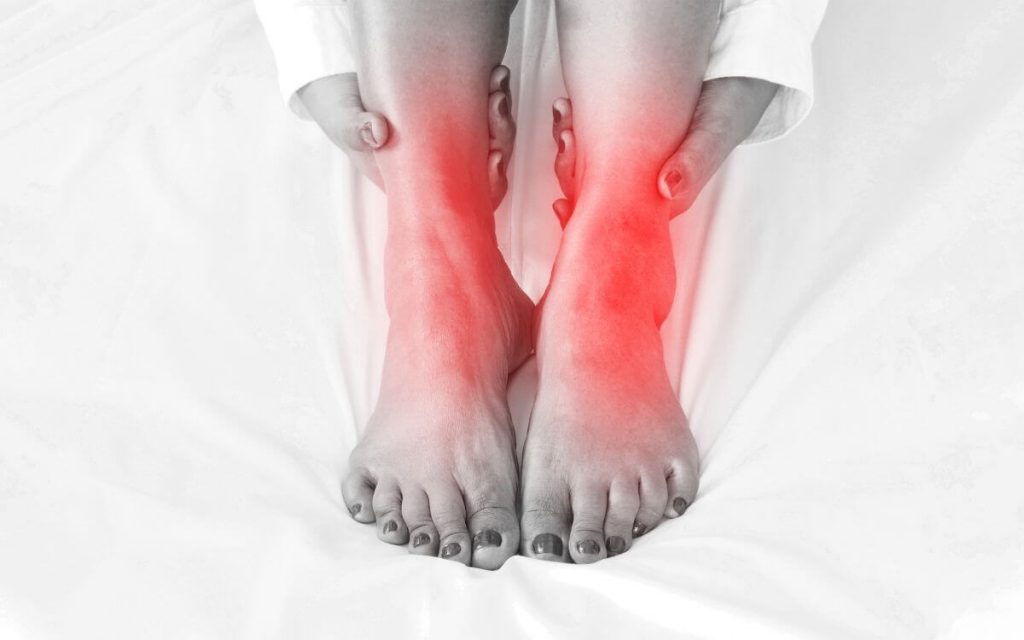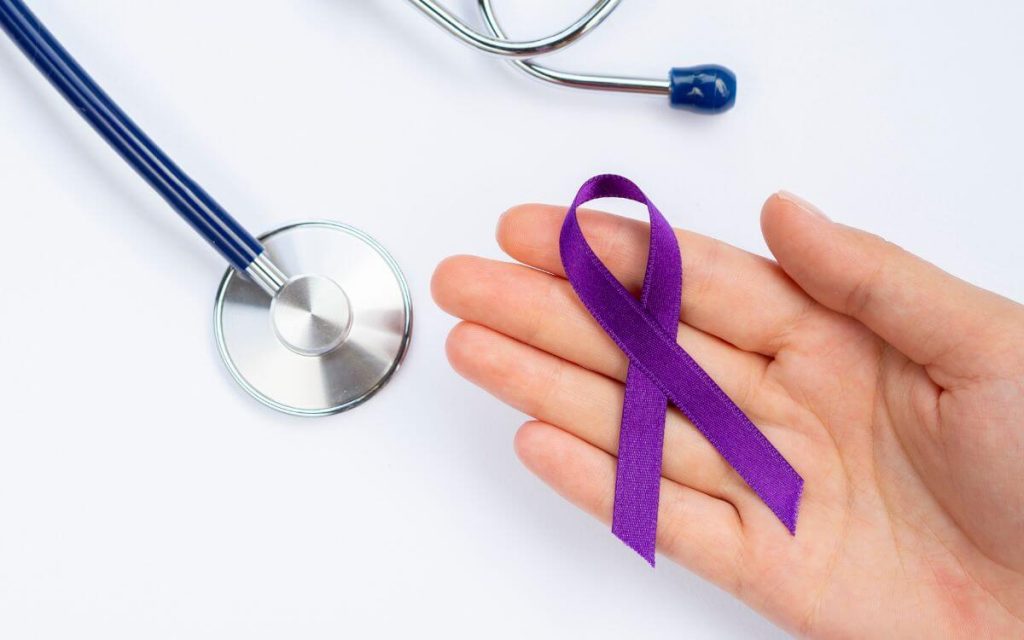How to calm fibromyalgia flare-ups?
Trying to figure out how to calm fibromyalgia flare-ups can be hard to do if you don’t know where to start. If you’re struggling to manage your fibromyalgia, don’t hesitate to talk to your doctor. They can help you develop a personalized treatment plan that will improve your quality of life.
However, getting diagnosed with fibromyalgia takes time because doctors have to run a lot of tests in order to exclude other conditions. But if you suspect that you have this chronic disorder, there are some things you can do today to manage it on your own.
For those who don’t know what fibromyalgia is, I wrote a short explanation below…
What is fibromyalgia?
Fibromyalgia is a disorder that causes widespread pain and tenderness in the body. It is often accompanied by fatigue, sleep problems, anxiety, and even depression. Fibromyalgia can make it difficult to carry out everyday activities.
There is no cure for fibromyalgia, but there are treatments that can help lessen the symptoms. Self-care is an important part of managing fibromyalgia. There are things you can do at home to help relieve your symptoms and improve your quality of life.
I discuss them in this very post. Let’s get to it!
But first, since you are interested in fibromyalgia, I wrote a “Fibromyalgia for Caring Partners” e-Book, in which 1st chapter is absolutely FREE!
FREE Fibromyalgia e-Book
Fibromyalgia for Caring Men

Quick tips on how to calm fibromyalgia flare-ups.
In a nutshell, I listed below a number of things you can do to help calm fibromyalgia flare-ups:
1. Get enough rest. When you’re well-rested, your body is better able to cope with stress and pain. Make sure to get at least eight hours of sleep every night.
2. Exercise regularly. Exercise releases endorphins, which have mood-boosting and pain-relieving effects. Just be sure to start slowly and increase the intensity gradually to avoid triggering a flare-up.
3. Manage stress levels. Stress can make the pain worse, so it’s important to find healthy ways to cope with stressors in your life. Try relaxation techniques such as yoga or meditation, or consider talking to a therapist.
4. Eat a healthy diet. Eating nutritious foods helps your body to function at its best. Make sure to include plenty of fruits, vegetables, and whole grains in your diet.
5. Avoid triggers. If you know certain activities or substances trigger your pain, try to avoid them as much as possible. Common triggers include caffeine, alcohol, and tobacco.
6. Take medication. Always take them as prescribed. If you’re taking medication for fibromyalgia, make sure to take it as directed by your doctor, even before the diagnosis, if you suffer from chronic pain. This will help to minimize flare-ups and maximize pain relief.

Why is fibromyalgia painful?
Fibromyalgia is a chronic disorder that is characterized by widespread pain and is accompanied by fatigue, sleep, memory issues, and mood swings. It is believed that fibromyalgia amplifies painful sensations by “affecting the way your brain and spinal cord process painful and nonpainful signals”.
The pain of fibromyalgia is often described as deep, aching muscle pain. It can be widespread, affecting not just the muscles but also joints, tendons, and other soft tissues.
The pain can vary in intensity, from mild to debilitating. It may be worse at certain times of day, such as in the morning or evening, and can vary from day to day. Some people also experience fatigue, sleep problems, anxiety, and even depression.
There is no one cause of fibromyalgia pain. Instead, it is thought to be caused by a combination of factors. These include:
- Muscle abnormalities: People with fibromyalgia often have changes in the way their muscles work. For example, they may have abnormalities in the way their muscles produce energy or process pain signals.
- Central nervous system changes: Fibromyalgia is associated with changes in the way the central nervous system processes pain signals. These changes may make people more sensitive to pain.
- Hormonal imbalances: Fibromyalgia has been linked to hormonal imbalances, such as low levels of serotonin and dopamine. Serotonin is a hormone that helps regulate mood, sleep, and appetite. Dopamine is a hormone involved in the body’s stress response.
- Inflammation: Some research suggests that inflammation may play a role in fibromyalgia pain. Inflammation is a normal immune response to injury or infection, however, in people with fibromyalgia, the inflammatory response may be abnormally high.
- Genetics: Fibromyalgia is more common in certain families, which suggests that genetics may play a role.
How to stop fibromyalgia pain?
There is no one-size-fits-all treatment for fibromyalgia pain. Instead, focus on relieving symptoms and improving your quality of life. Treatment options include medication, exercise, and lifestyle changes.
Medications that may be used to treat fibromyalgia pain include pain relievers, antidepressants, and anti-seizure drugs. My wife, however, takes none of the above, focusing on a holistic approach.
I usually apply a CBD oil or balm rubbing it into her body, which always lowers the volume of pain and at the same time her anxiety. It makes her a little bit sleepy, but this is another benefit when you need a lot of sleep due to a lack of it.
Exercise and physical therapy can help improve muscle strength and flexibility. Lifestyle changes such as stress reduction and getting enough sleep can also help manage fibromyalgia pain. They all belong to a holistic approach.
So, how do you calm fibromyalgia flare-ups?
There’s no single answer to the question. What can you do when a fibromyalgia attack comes? Well, some people find that a hot bath or shower helps relax their muscles and ease their pain. Others find relief from applying heat or cold packs to sore areas.
But what to do if you don’t have a bathtub? My wife doesn’t. Well…
Some people find that massage therapy is helpful in reducing their pain levels. If you add to it CBD balm or CBD oil, it works wonders. Others find that acupuncture or other forms of alternative medicine help them manage their symptoms.
The most important thing you can do when you’re trying to calm fibromyalgia flare-ups is to listen to your body and do what feels best for you. Remember that every person experiences fibromyalgia differently, so there’s no one-size-fits-all solution.
However, there are self-care techniques that may help you find some relief from your symptoms.
Self-care for fibromyalgia.
There are a number of things you can do to help manage your fibromyalgia and improve your quality of life. Some people find that regular exercise, relaxation techniques, and making certain lifestyle changes can help reduce their symptoms.
It’s also important to get plenty of rest and to pace yourself so that you don’t overdo it and make your symptoms worse. Here are some specific self-care tips that may help you better manage your fibromyalgia:
Take care of yourself.
It’s important to find ways to reduce stress in your life and to take care of yourself. This may include getting regular massages, taking breaks during the day, and making time for activities that you enjoy.
Get regular exercise.
Exercise is an important part of managing fibromyalgia. It can help improve your overall fitness, reduce pain and fatigue, and lift your mood.
However, it’s important to start slowly and gradually increase your activity level. If you try to do too much too soon, you may end up feeling more tired and sore.
It’s also important to find an exercise routine that you enjoy so that you’re more likely to stick with it. Some people find that low-impact activities like walking, swimming, or Tai Chi are helpful.
Try relaxation techniques.
Relaxation techniques can help reduce stress and ease muscle pain. Some people find that practices like yoga, meditation, and deep breathing are helpful.
Make lifestyle changes.
There are a number of lifestyle changes that can help reduce the symptoms of fibromyalgia. These include getting enough sleep, eating a healthy diet, and avoiding trigger foods.
Other lifestyle changes that may help include quitting smoking, cutting back on alcohol, and reducing stress.
Apply heat or cold to sore areas.
Applying heat or cold to sore areas can help reduce pain and muscle stiffness. Some people find relief by taking a hot bath or using a heating pad. Others find that applying ice or a cold pack helps reduce swelling and pain.
Try massage therapy.
Massage therapy can help reduce pain and muscle stiffness. It can also help you relax and improve your sleep.

Consider acupuncture.
Acupuncture is a form of alternative medicine that involves placing needles in the skin. Some people find that it helps reduce pain and fatigue.
Use CBD balm or oil.
CBD products are known to help with pain and inflammation. This can be a great option for people who want to try an alternative or natural approach to managing their fibromyalgia symptoms.
Get plenty of rest.
Fatigue is a common symptom of fibromyalgia, so it’s important to get plenty of rest. This doesn’t mean that you need to spend all day in bed, but it does mean that you should take breaks during the day and make sure to get a good night’s sleep.
Getting enough sleep can also be a relaxation to calm fibromyalgia flare-ups. Fatigue is a common symptom of fibromyalgia, so it’s important to get plenty of sleep.
Pace yourself.
Pacing yourself is important when you’re trying to manage your fibromyalgia. This means not overdoing it and knowing when to rest.
It’s also important to set realistic goals and not try to do too much at once. When you pace yourself, you’re more likely to stick with your treatment plan and see improvements in your symptoms.
Join a support group.
Support groups can provide emotional support and practical advice for dealing with fibromyalgia. They can also be a great way to meet other people who are dealing with the same condition.
There are many online and offline support groups for people with fibromyalgia. You can find a group near you by searching online or asking your doctor for recommendations.
Take medications as prescribed.
If you’re taking medication for fibromyalgia, it’s important to take it as prescribed. This includes both over-the-counter and prescription medications.
Seek support.
It can be helpful to connect with others who are dealing with fibromyalgia. There are a number of online and in-person support groups available.
Seek professional help.
If you’re struggling to manage your symptoms, it may be helpful to see a fibromyalgia specialist. They can provide you with more information about the condition and offer additional treatment options.
FREE Fibromyalgia e-Book
Fibromyalgia for Caring Men

Takeaways!
Fibromyalgia can be a challenging condition to live with, but there are things you can do to help manage your symptoms. By following these self-care tips, you can improve your quality of life and make coping with fibromyalgia easier.
To summarise, below you will find bullet points on how to calm fibromyalgia flare-ups:
- Rest and pace yourself
- Get regular exercise
- Try relaxation techniques
- Make lifestyle changes
- Take medications as prescribed
- Seek family and friend’s support
- Take care of yourself
- Seek professional help


About Me
Hi, I’m Lucjan! The reason why I decided to create this blog was my beautiful wife, who experienced a lot of pain in life, but also the lack of information about endometriosis and fibromyalgia for men…
